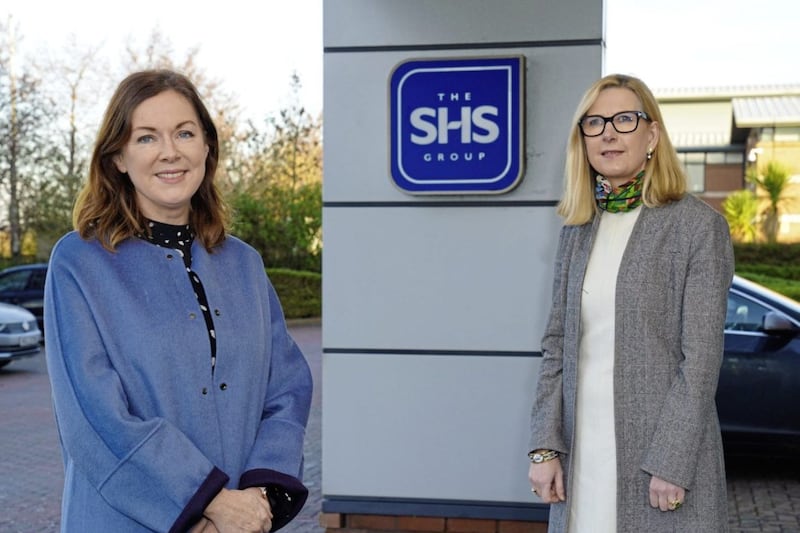IN turbulent global and political times, it can be hard to pick out the signals which indicate the true picture of everyday business performance. We have an energy price crisis, ongoing war in Ukraine, political uncertainty in Northern Ireland, a new UK Prime Minister and of course, a new British monarch. However, amidst all of this big picture change, there are positive economic signs of resilience.
Beyond the big headlines of recent months, locally we have seen encouraging flashes of financial performance for some of our bigger businesses, and news of important new deals – I’m thinking of results from Henderson Group and Skea Eggs and a significant contract for Wrightbus in just the last couple of weeks.
Getting closer to the current operating conditions on the ground, we can take a look at the most recent report from Barclaycard Payments, which processes one in three debit and credit card payments in the UK. Its quarterly SME Barometer combines billions of merchant transactions with research data to provide an in-depth look at the UK SME economy. Its most recent analysis provides an interesting up to date snapshot of the ups and downs - and inevitable uncertainty - being faced by SMEs at the minute.
SMEs are the major player in Northern Ireland’s economy, with small businesses defined as those between £2m – £10m and medium-sized businesses turning over £10m – £25m.
In the study, more than half (55 per cent) of small and medium-sized enterprises (SMEs) across the UK including Northern Ireland saw revenue increases in the second quarter of this year against 2021. And a similar number (54 per cent) of small businesses also expect further gains this quarter despite concerns about a looming recession.
Data shows an annual rise of 7.3 per cent in the value and 18.1 per cent in the volume of payments made to UK SMEs between April and June this year.
The research found that a third (34 per cent) of SMEs increased their number of full-time employees in Q2, recruiting an average of seven new employees each.
This trend is also expected to continue in Q3, as on average small businesses predict a further 10 per cent increase in their turnover for July to September, against the same period a year ago.
To give some perspective however, this reported revenue growth comes at a time when more than half (53 per cent) of small business leaders surveyed are pessimistic about the prospects of the UK economy. It will come as no surprise that 77 per cent are concerned over the rising cost of bills and inflation, 77 per cent fear recession and 74 per cent are worried about the soaring cost of energy.
Again, unsurprisingly, it seems the reality of this worry is ramping up, as last quarter (Q2), 51 per cent of businesses were concerned that increased living costs would impact consumer spending, and in Q3, this has risen to nearly three in five (59 per cent).
In Q2, 28 per cent feared it would make them less competitive as they would need to increase prices; similarly in Q3, this has increased, with 41 per cent now worried that rising costs will impact their competitiveness.
When looking at the general sentiment of businesses at the minute, it is really encouraging to see that, despite the backdrop of uncertainty, 83 per cent of SMEs across the UK are neutral (45 per cent) or optimistic (38 per cent) about their own business’ prospects. This confidence comes from looking at things like their sales pipeline and improvements in supply chain, all of which are remaining steady and positive, with half of businesses (50 per cent) describing their current cashflow as strong.
To further support predicted growth, more than three in five (68 per cent) SMEs say they plan to invest in their business over the next 12 months, turning to recruitment, marketing and technology to shore up their operations.
There is no question that the current operating landscape holds a range of challenges for businesses, not least of which is the energy crisis. Here in Northern Ireland, we are hopeful that the business supports being made available elsewhere in the UK can be delivered speedily here too.
During the pandemic, SMEs demonstrated determination, agility and innovation. While the research shows they are continuing to push forward in the face of rising costs and inflation, we must recognise that times will continue to be challenging. The resilience already demonstrated in this sector gives us confidence that small and medium sized businesses will continue to succeed.
Earlier this year, Barclays launched its Business Health Pledge (https://labs.barclays/business-health-hub), a package of support aimed at boosting small businesses and helping SMEs recover and grow. Our master classes focus on managing cash flow, business growth and support for wellbeing as well as national, sector specific expertise. We must do all we can to support SMEs as a lynch pin in the Northern Ireland economy and enable them to thrive.
:: Adrian Doran is head of corporate banking for Barclays in Northern Ireland








